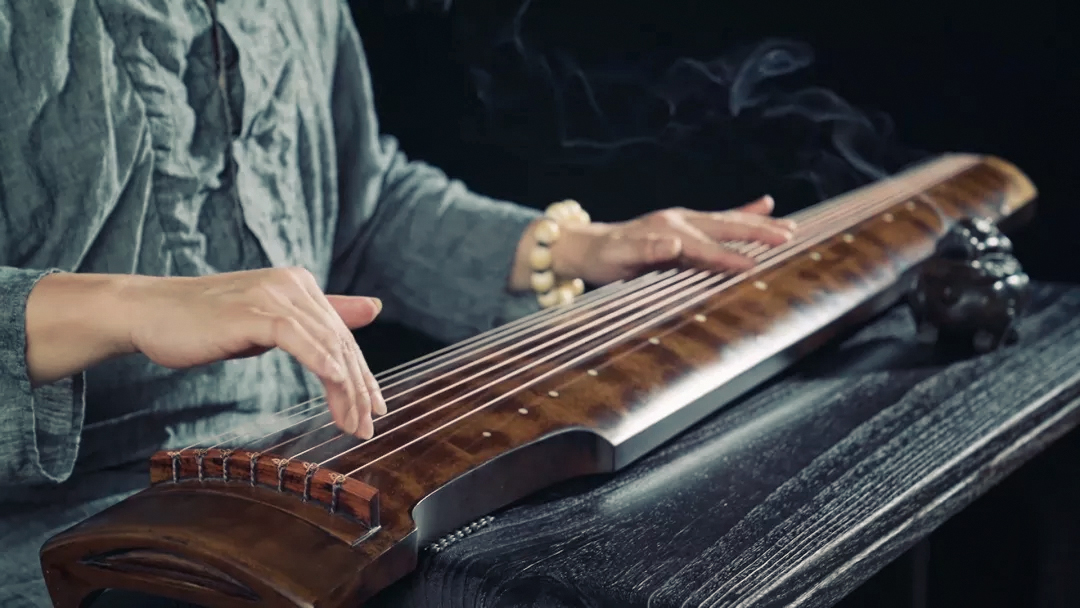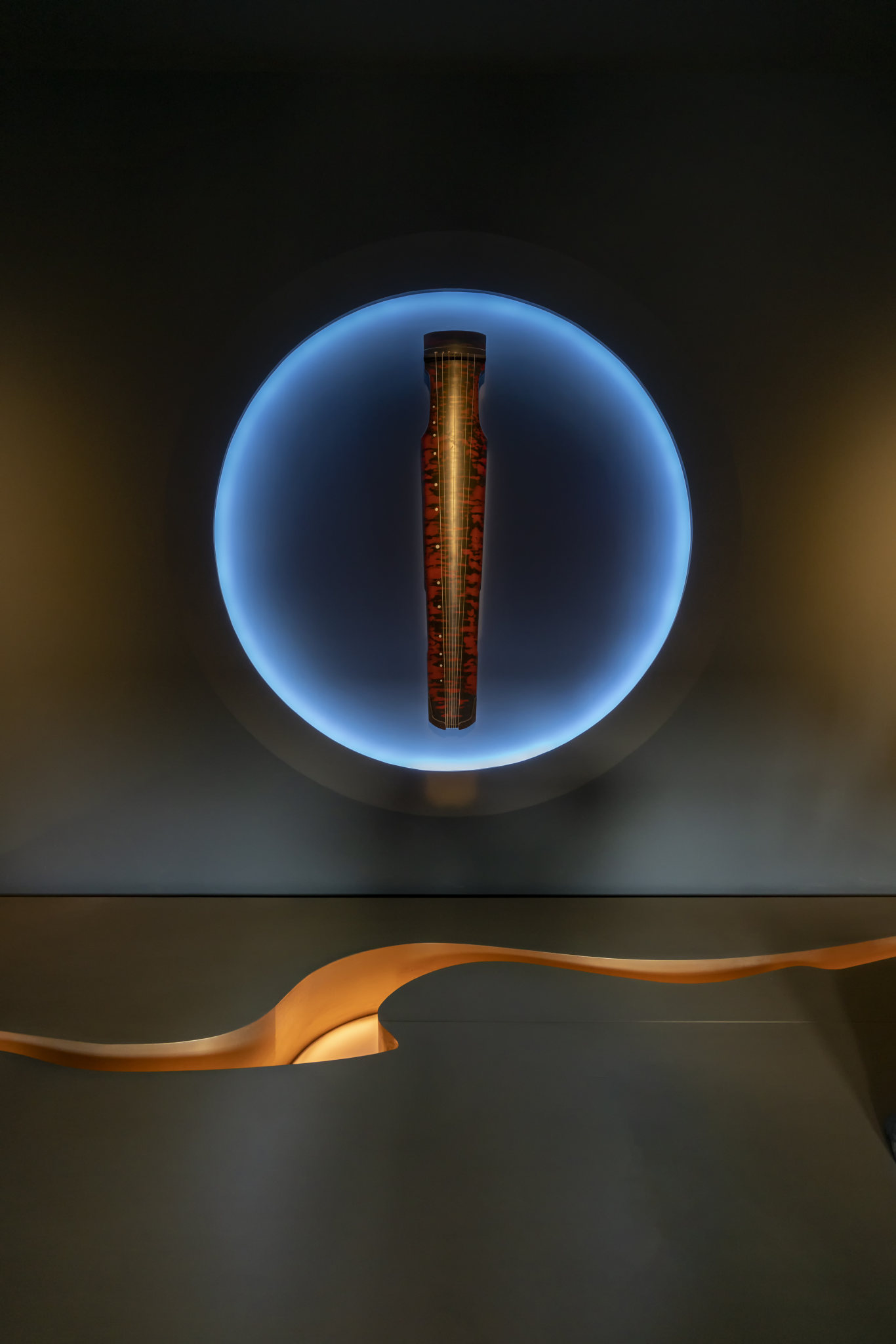古琴是中国最古老、艺术水准最高且最具民族精神、审美情趣的器乐演奏形式,在中国已有3000多年的历史。通过不同的演奏方式,古琴能演出或刚劲、或轻盈、或清亮的丰富音色。
Guqin is China's oldest, highest artistic level, most national spirit, and aesthetically appealing form of instrumental music performance. It has a history of more than 3,000 years in China. Through different ways of playing, the guqin can perform a strong or light, clear, and rich timbre.

古琴和中国文人息息相关,它是中国文人所必需的素质修养“琴、棋、书、画”当中的一种,且位居其首。人们弹奏古琴往往不仅是为了演奏音乐,还和自娱自赏、冥思、个人修养以及挚友间的情感交流密不可分。
Guqin is closely related to Chinese literati. It is one of the necessary qualities of Chinese literati: "Guqin, chess, calligraphy, and painting", and it ranks first. People often play the guqin not only for playing music, but also for self-entertainment, meditation, personal cultivation, and emotional exchanges between close friends.

南宋末年,古琴演奏家郭楚望先生寄居杭州,见浙江之山水,触景抒情,感慨国之大事,为抒发内心爱山水、爱国之情而创作名曲《潇湘水云》,浙派古琴随之开创。所谓浙派古琴,是中国古琴艺术的重要分支,其演奏追求“清脆、细致、恬淡、悠远”的艺术境界。2008年,包含浙派古琴艺术在内的“古琴艺术”,成功列入人类非物质文化遗产代表作名录。
At the end of the Southern Song Dynasty, Guqin player Guo Chuwang resided in Hangzhou. He saw the landscape of Zhejiang, touched the scene to express his emotions, and expressed his emotions about the country's major events. He composed the famous song "Xiaoxiang Water Clouds" to express his love for the landscape and patriotism, and the Zhejiang guqin was created. The so-called Zhejiang style guqin is an important branch of Chinese guqin art, and its performance pursues the artistic realm of "crispy, meticulous, calm and remote". In 2008, including the Zhejiang School Guqin Art, the Guqin Art was successfully selected in the list of representative works of human intangible cultural heritage.